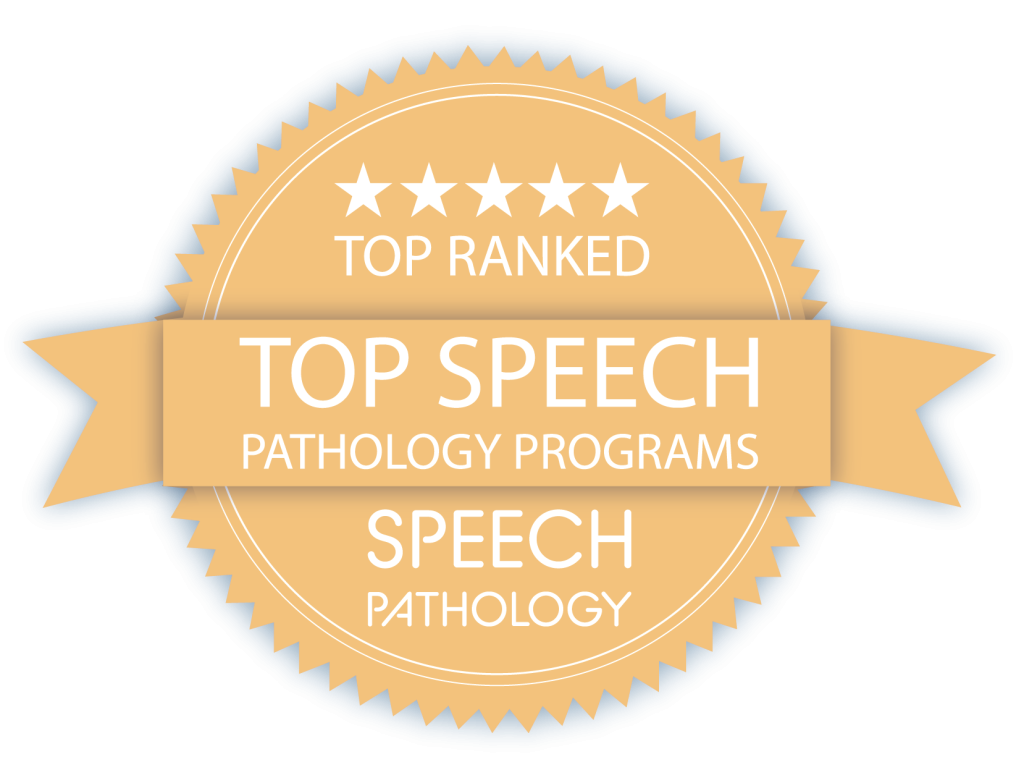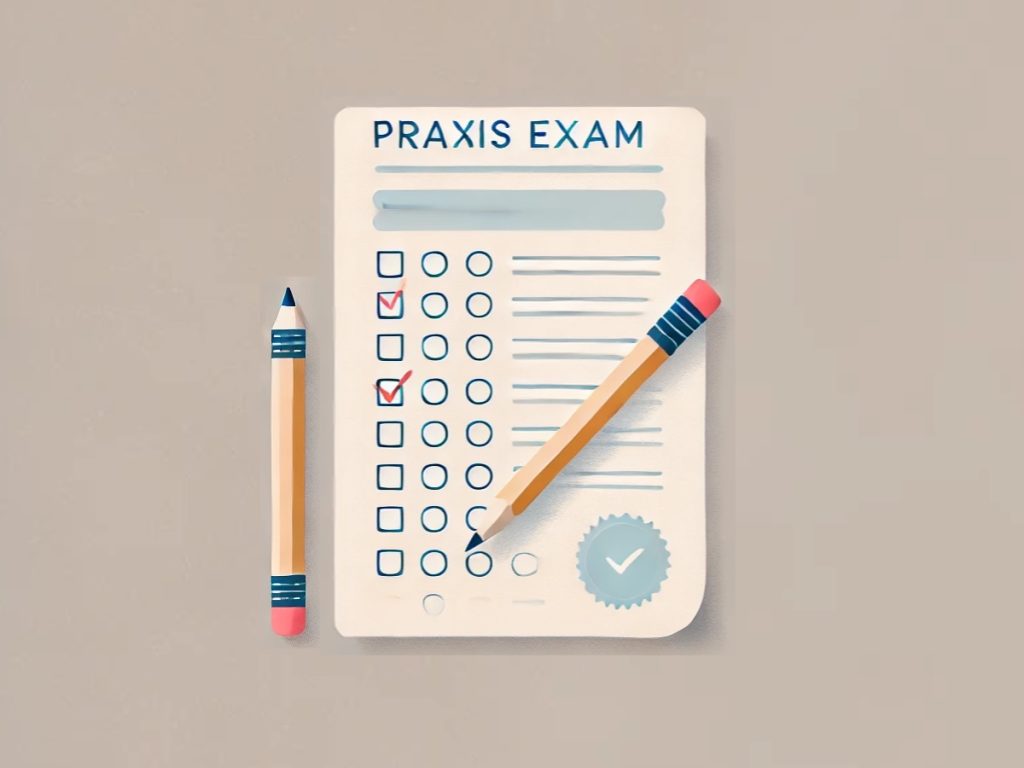Last Updated
April 14, 2025Written By
Benjamin Thompson, M.S., CCC‑SLPSome of the best Speech-Language Pathology programs are in Massachusetts, ranging from the prestigious private institutions like Boston University and Emerson College to more affordable public universities such as the University of Massachusetts Amherst, Worcester State University, and Bridgewater State University. They are accredited by the American Speech-Language Hearing Association (ASHA), so students graduate ready for licensure in Massachusetts. Prospective students can also look at online SLP degrees or hybrid master’s degrees, including Emerson’s very popular virtual program.
One good reason to study as a SLP in Massachusetts is the strong job prospects. Home to well-known hospitals, research facilities and excellent public schools the state provides consistent, well paid speech pathology employment. In fact, Massachusetts speech pathologists earn higher than the national average, with an annual salary of $95,000 and above. This premium is due to the strong demand in the medical and educational sectors especially in the Greater Boston area. Also, there are many clinical fellowship (CF) opportunities within the state’s vast healthcare system to enhance one’s professional experience early on. In all, selecting an SLP program in Massachusetts provides students with a premier education, rich clinical practice, and the possibility of a high paying job in a healthy market.

Speechpathology.org brings you the top speech-language pathology programs in Massachusetts based on what students care about most: strong academics, real-world experience, and reputation. Discover leading speech-language pathology programs in Massachusetts and learn how we choose them at speechpathology.org/rankings-methology.

Cambridge, MA - Private 4-year - harvard.edu
Concentration: Speech-Language Pathology - Campus Based - Visit Website
Harvard University's Speech-Language Pathology Track provides comprehensive preparation for ASHA certification through 13 communication sciences courses and 400 supervised clinical hours, typically completed in years two and three. The program features a unique collaboration with Massachusetts General Hospital Institute of Health Professions, emphasizing rigorous academic and clinical training. This campus-based program requires a one-time $10,000 fee and maintains competitive admissions focused on academic excellence. As a master's or doctorate level program, entrance exam requirements should be verified directly with the institution as they are not explicitly stated in provided materials.
Concentration: Speech-Language Pathology - Campus Based - Visit Website
Harvard University's Speech and Hearing Bioscience and Technology program with Speech-Language Pathology concentration combines multidisciplinary coursework with extensive research components, including lab rotations and dissertation requirements. This campus-based program in Cambridge, Massachusetts typically takes 5.5 years to complete and prepares graduates for ASHA certification through integrated academic and clinical training. The curriculum emphasizes hands-on research experience while developing speech-language pathology expertise. For this graduate-level program, specific entrance exam requirements are not detailed in available information and should be confirmed directly with the university admissions office.
Wenham, MA - Private 4-year - gordon.edu
Campus Based - Visit Website
Gordon College's Communication Sciences and Disorders program integrates faith-based principles with interdisciplinary learning, preparing students for careers as speech-language pathologists or audiologists. The curriculum combines arts and sciences to develop skills in assessing, diagnosing, and treating speech, language, and hearing disorders across all age groups. Emphasizing experiential learning, students engage in community observation and clinical practice. This program meets prerequisites for state licensure and graduate studies, supported by career guidance from professors. As a bachelor's level program, it requires ACT or SAT entrance exams. The military-friendly environment and liberal arts foundation enhance readiness for diverse professional settings.
Amherst, MA - Public 4-Year - umass.edu
Campus Based - Visit Website
The University of Massachusetts-Amherst's Master of Arts in Speech-Language Pathology prepares students for clinical careers through a comprehensive two-year, on-campus curriculum. Students complete 15 advanced courses and 400 supervised clinical hours, meeting ASHA CCC-SLP and Massachusetts licensure requirements. The program emphasizes hands-on experience in diverse settings and offers an optional graduate certificate in multiculturalism in communication disorders. It requires an entrance exam for admission. Military-friendly, it provides eligibility for Teacher Specialist Licensure and has a January 15, 2025 application deadline, with no online options available.
Boston, MA - Private 4-year - northeastern.edu
Campus Based - Visit Website
Northeastern University's Speech-Language Pathology and Audiology BS program in Boston provides a comprehensive four-year curriculum blending rigorous coursework with practical clinical experience at the on-campus Behrakis Speech-Language and Hearing Center. This campus-based program features co-op opportunities that integrate hands-on learning with academic studies, preparing students for graduate education or direct entry into the field. The curriculum covers both speech-language pathology and audiology fundamentals, with combined major options available. As a bachelor's level program, admission requires meeting Northeastern's undergraduate criteria, which typically includes ACT or SAT entrance exams. The program emphasizes licensure preparation and professional development in speech and hearing sciences.
Worcester, MA - Public 4-Year - worcester.edu
Campus Based - Visit Website
Worcester State University's Master of Science in Speech-Language Pathology is a CAA-accredited program preparing students for diverse clinical settings through 375 live clinical hours. With flexible full-time or part-time options, students can complete the 55-semester-hour curriculum in 2-3 years, including an accelerated track. The program emphasizes evidence-based practice, cultural diversity, and professional collaboration, requiring a 3.0 GPA, 25 observation hours, and specific prerequisites. Admission requires a bachelor's degree and application by February 1 for a summer start, with no entrance exam mentioned. Graduates are equipped for certification and licensure, focusing on lifelong learning and ethical practice in speech-language pathology.
Boston, MA - Private 4-year - bu.edu
Campus Based - Visit Website
Boston University's Master of Science in Speech-Language Pathology is a two-year campus program accredited by ASHA, requiring 66-68 graduate units and a minimum 3.0 GPA. It emphasizes evidence-based practices and comprehensive clinical training across healthcare and school settings, with individualized course plans and a five-year completion window. The program prepares graduates for clinical certification and state licensure, focusing on diagnosing and treating speech, language, and swallowing disorders. An entrance exam is required for admission.
Bridgewater, MA - Public 4-Year - bridgew.edu
Campus Based - Visit Website
Bridgewater State University's Master of Science in Speech-Language Pathology delivers rigorous academic and clinical training, preparing students for national certification and state licensure. The program emphasizes advanced communication sciences and hands-on clinical experience, enabling graduates to diagnose and treat speech, language, and swallowing disorders in diverse populations. Accredited by the Council on Academic Accreditation, it equips students with essential skills for impactful careers in healthcare and education. This graduate program requires an entrance exam, such as the GRE, for admission.
Weston, MA - Private 4-year - regiscollege.edu
Online & Campus Based - Visit Website
Regis College's hybrid Master of Science in Speech-Language Pathology offers flexible full-time or part-time study across 56 credit hours, preparing students for diverse clinical roles in hospitals, schools, and clinics. The comprehensive curriculum emphasizes child language disorders, autism spectrum disorder, and augmentative communication, alongside training in dysphagia, aphasia, and motor speech disorders. Students complete externships and a capstone project, developing counseling and research skills essential for professional licensure. This program requires an entrance exam for admission, with tailored requirements and deadlines to support prospective students.
Boston, MA - Private 4-year - northeastern.edu
Campus Based - Visit Website
Northeastern University's Bachelor of Science in Speech-Language Pathology and Audiology provides a four-year, practice-oriented education with hands-on clinical observations at the on-campus Speech-Language and Hearing Center. Students engage in a co-op experience and can pursue combined majors or the PlusOne pathway to a master's degree. The program prepares graduates for advanced studies or entry-level roles in educational, medical, and rehabilitation settings. For this bachelor's level program, an ACT or SAT entrance exam is required.
Campus Based - Visit Website
Northeastern University's Master of Science in Speech-Language Pathology features an accelerated PlusOne pathway for undergraduates to begin graduate coursework early, reducing time to degree. This intensive on-campus program includes comprehensive clinical training in diagnostic and therapeutic techniques for diverse communication disorders. With a January 15 application deadline, it requires a minimum 3.0 GPA, three recommendation letters, and full-time study. The curriculum blends academic rigor with hands-on practicum experiences, preparing graduates for successful careers. An entrance exam is required for this master's level program.
Boston, MA - Private 4-year - mghihp.edu
Campus Based - Visit Website
MGH Institute of Health Professions offers a Master of Science in Speech Language Pathology, a two-year full-time program starting each September. This comprehensive program integrates the study of written and spoken language disorders, preparing graduates for both educational and healthcare settings. Students gain extensive clinical experience through practica at the MGH Institute Speech, Language and Literacy Center and placements across New England. The program features optional concentrations in areas including Adult Neurogenic Communication Disorders, Autism Spectrum Disorders, and Medical Speech Pathology. With affiliation to Mass General Brigham and over 200 active clinical affiliates, graduates are well-prepared for diverse speech-language pathology roles. This master's level program does not require an entrance exam.
Concentration: Adult Neurogenic Communication Disorders - Campus Based - Visit Website
MGH Institute of Health Professions' Master of Science in Speech Language Pathology with a concentration in Adult Neurogenic Communication Disorders provides specialized training in neurological communication disorders. This two-year full-time program begins each September and integrates comprehensive clinical experiences starting with in-house practica and progressing to placements throughout New England. Students develop expertise in assessing and treating adult neurogenic communication conditions while benefiting from the program's affiliation with Mass General Brigham and extensive network of clinical partners. The curriculum emphasizes both educational and medical speech-language pathology applications, preparing graduates for specialized roles in neurogenic communication disorders. This master's level program does not require an entrance exam.
It may be useful to compare a bachelor’s degree in Speech-Language pathology and master’s degree in SLP in Massachusetts to determine which track is best for you. The four-year Communication Sciences and Disorders (CSD) bachelor’s degrees provided by schools like UMass Amherst, Bridgewater State, or Worcester State prepares students with speech science, audiology and language development knowledge. Admissions requirements are also fairly standard and include a high school diploma, around 2.7 to 3.0 minimum GPA, and in some cases, standardized test scores. You can only do things like be a Speech-Language Pathology Assistant (SLPA), work in allied health support, or prepare to apply to a master’s program with a bachelor’s by itself.
On the other hand, a master’s in speech pathology is the minimum certification for practice in Massachusetts and allows practitioners to work in hospitals, schools or private clinics. Admissions criteria are also fairly similar and often include a CSD or related bachelor’s degree (prerequisites if your degree is outside the field), competitive GPA of 3.0 or higher, letters of recommendation, and in some cases, GRE scores. Costs can vary a lot as well; public schools in-state can be fairly cheap (for example, less than $15,000 per year), while private institutions can be more than $40,000 a year. Nevertheless, licensed Massachusetts Speech pathologists earn about $95,000 annually, which is reasonable given that the job is fairly secure in well-funded healthcare and educational settings. If there is no bachelor’s SLP major offered near you, students can major in a similar field and take the necessary prerequisite courses to enter a graduate program.
When searching for doctorate SLP degrees in Massachusetts, the professional compares PhD in Communication Disorders or Speech, Language & Hearing Sciences with Doctor of Speech-Language Pathology (SLPD). A PhD is ideal for people who want to work as academics, researchers or at high level management positions. The admission criteria of these programs are also to have a master’s degree in speech-language pathology or a related field, satisfactory GRE scores, 3.5+ GPA, and research interests like those of Boston University or UMass Amherst. Many graduates end up being university faculty members, research scientists, or directors of clinical programs, and tuition can be supplemented by stipends or scholarships, particularly for students who work as teaching or research assistants.
An SLPD, including those provided by MGH Institute of Health Professions, is more targeted towards advanced clinical practice and leadership, which is more appealing to the experienced speech pathologists who want to enhance their clinical skills but do not want to undergo the rigorous research component of a PhD. Admission is usually simpler and may require a master’s degree in SLP, state licensure, and one or two years of clinical experience. Tuition is less standardized and may not be fully covered, but some employers pay part of the tuition fee. SLPD graduates can progress to senior clinician, clinical director, or consultant positions, which often come with higher remuneration. If either of the two paths is not offered at certain Massachusetts universities, students may decide to enroll in a good online or out-of-state university that meets the licensure needs.
If you have decided that helping others find their voice is your calling, Massachusetts has a structured but rewarding way to become a licensed Speech-Language Pathologist (SLP). You will first complete a master’s degree from a CAA accredited program. Next, you will spend at least 400 clinical hours in the field, 375 hours of which will be direct patient contact and 25 hours of supervised observation during internship. Then, you’ll need to pass your PRAXIS exam.
In Massachusetts, you’ll need to clear a comprehensive exam like the CLST if you want to work in public schools and possibly undergo an interview or conference presentation. Once you’ve checked those boxes, you’re almost there! You’ll need to submit a formal application and pay the licensure fee. After that, you’re set to fly solo and provide speech-language services independently across the state of Massachusetts.
Once you graduate, you’ll tackle the Praxis exam, aiming for a passing score around 162. After that, you’ll embark on a 36-week Clinical Fellowship (CF), working under a seasoned SLP mentor who can offer the guidance, support, and real-world know-how textbooks can’t fully capture.
When you finish your CF and apply to the Massachusetts Board of Registration, you’ll step into your role as a fully licensed Speech Language Pathologist professional. From then on, every two years, you’ll need 20 hours of continuing education—think of it as your chance to keep learning about the latest speech pathology treatment techniques and research. If you decide to serve in public schools, you’ll likely need an additional educator license. It’s a lot of work, but the reward is a career dedicated to elevating communication, one voice at a time.
If you are interested in becoming a speech-language pathologist and want to do so in the shortest amount of time, there are a few creative options available in Massachusetts. The general duration of a bachelor’s degree in Communication Sciences and Disorders is four years, but some schools, like Worcester State, have a 4+1 or 5-year combined SLP bachelor’s/master’s tracks that will allow you to move right into advanced coursework to speed things up. This can cut as much as a year off of your total time in school.
When it comes to master’s programs and what you’ll need to become a licensed speech pathologist, most are two years if you are attending school full time. However, Speech@Emerson from Emerson College has an accelerated schedule that can be done in as few as 20 months, which is great if you want to get into clinical practice sooner.
Beyond that, folks aiming for doctoral-level expertise can opt for PhD or SLPD degrees. Although these typically span several years, a few Massachusetts institutions have “fast-track” or integrated MS/PhD pathways (Boston University is one example), where you begin doctoral studies right after or even alongside your master’s coursework. This can condense your total time in school and get you out into the world as a top-tier expert faster. It’s a challenging but exciting journey for those who crave both clinical mastery and research or leadership roles.
| School Name | Highlights | Retention & Grad Rates |
|---|---|---|
| Harvard University |
|
|
| Boston University |
|
|
| University of Massachusetts-Amherst |
|
|
If saving money on your Speech-Language Pathology (SLP) education is high on your list of priorities, then Massachusetts has you covered. Some places that are good for an undergraduate degree include Worcester State University or Bridgewater State University, which have relatively lower tuition fees than private institutions and offer in-state students rates between $10,000 and $15,000 per year. This can be a real budget saver if you are just starting out in the field.
At the master’s level, which is required for speech pathology licensure, public universities such as UMass Amherst or Worcester State are also fairly priced. Out-of-state students will pay more, but it will usually be less than private college tuition that can climb above $40,000 per year. If you are looking towards a doctoral path, some PhD programs (e.g. at UMass Amherst) may have stipends or assistantships that cover some or all of the tuition, making advanced study not so bad after all. The SLPD degrees, which are mainly for practicing clinicians, are not usually funded.
If you decide to attend a more expensive private institution, there are still scholarships, fellowships, or work study options that can help ease the cost. One should also note that being a SLP is a well paying profession in Massachusetts due to high demand in the market.
| School Name | Highlights | Annual Estimated Tuition & Fees |
|---|---|---|
| Worcester State University |
|
|
| Bridgewater State University |
|
|
| Gordon College |
|
|

If you have ever been researching speech-language pathology careers and come across the words ‘speech pathologist’ and ‘speech therapist’, you might wonder if they are

If you are pursuing the position of a speech-language pathologist, then you may have heard of the Praxis exam from your professors, classmates, or even

Dyslexia, a common learning difference affecting reading, writing, and language processing, can present unique challenges for students transitioning from high school to college. Fortunately, a

If you are interested in pursuing a career in SLP and have been researching licensing requirements or are simply interested in learning more about SLP